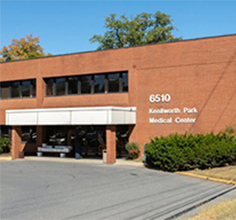
Menopause, a natural phase in a woman's life, marks the end of menstrual cycles and reproductive function. This transitional period, typically occurring around the age of 50, is accompanied by a range of physiological changes due to decreased estrogen production. One such consequence is the increased vulnerability to osteoporosis, a progressive skeletal disorder characterized by reduced bone density and increased fracture risk. As medical research develops, the question of whether menopause directly causes osteoporosis has been a topic of keen interest. In this short article brought to you by Southern Maryland Medical Group, we briefly explore the topic.
Menopause, as you may know, results in reduced estrogen levels. What you might not know is that this hormone is crucial for maintaining bone health. Estrogen plays a pivotal role in inhibiting bone resorption, or the process by which bones are broken down and calcium is released into the bloodstream.
Reduced estrogen levels during menopause lead to an imbalance between bone formation and resorption, ultimately leading to a net loss of bone mass. Consequently, this gradual decline in bone density makes postmenopausal women particularly susceptible to osteoporosis. The connection between menopause and osteoporosis is thus well-established from a physiological standpoint.
While the connection between menopause and osteoporosis is deeply rooted in hormonal shifts, it is important to distinguish between causation and correlation. While menopause undeniably contributes to the hormonal imbalance that fuels osteoporosis, it is not the sole factor. Other variables, such as genetics, lifestyle choices, and overall health, significantly impact an individual's susceptibility to osteoporosis. Nonetheless, menopause serves as a critical turning point, exacerbating the risk due to the drastic reduction in estrogen.
As menopause ushers in hormonal changes that increase the risk of osteoporosis, empowering women with effective strategies to combat the reality is of paramount importance. Fortunately, there are a handful of measures that women can adopt to fortify their bone health and defy the impact of hormonal shifts.
A balanced diet rich in calcium and vitamin D forms the cornerstone of bone health. Calcium is essential for bone density, and vitamin D aids calcium absorption. Dairy products, leafy greens, fortified foods, and supplements, when recommended by a healthcare professional, can help meet these requirements.
Further, engaging in exercises such as walking, jogging, dancing, and resistance training stimulates bone formation and reduces the risk of fractures. Incorporating both aerobic and strength-building exercises into your routine enhances muscle strength, balance, and coordination.
Certain lifestyle choices directly impact bone health. Limiting alcohol consumption and refraining from smoking are imperative, as both habits accelerate bone loss. Excessive alcohol consumption hampers the body's ability to absorb calcium, while smoking interferes with estrogen production and weakens bones.
Finally, consulting a healthcare provider about hormone replacement therapy is a prudent step for some women. HRT, which involves supplementing the body with estrogen and sometimes progesterone, can help mitigate the hormonal imbalances associated with menopause.
Routine bone density screenings, especially around the time of menopause, help monitor bone health and detect osteoporosis early. Early detection allows for timely interventions, reducing the risk of fractures and improving overall quality of life. If you are looking for licensed primary care doctors in the Southern Maryland area, then contact Southern Maryland Medical Group to schedule an appointment with a primary care physician today.
Southern Maryland Medical Group has 3 convenient locations to provide professional medical care services in the Southern Maryland area. Call or schedule an appointment with one of our locations to get medical care help.

5801 Allentown Road, Suite 400 Camp Spring, MD 20746
Phone: 301-868- 0150
Billing Inquiries: 301-552-1270
Fax: 301-868-0243

7500 Greenway Center, Dr #1200 Greenbelt, MD 20770
Phone: 301-486-7580
Billing Inquiries: 301-552-1270
Fax: 301-486-7581

6510 Kenilworth Ave, Ste 1400, Riverdale MD 20737
Phone: 301-618-0771
Billing Inquiries: 301-552-1270
Fax: 301-618-0772